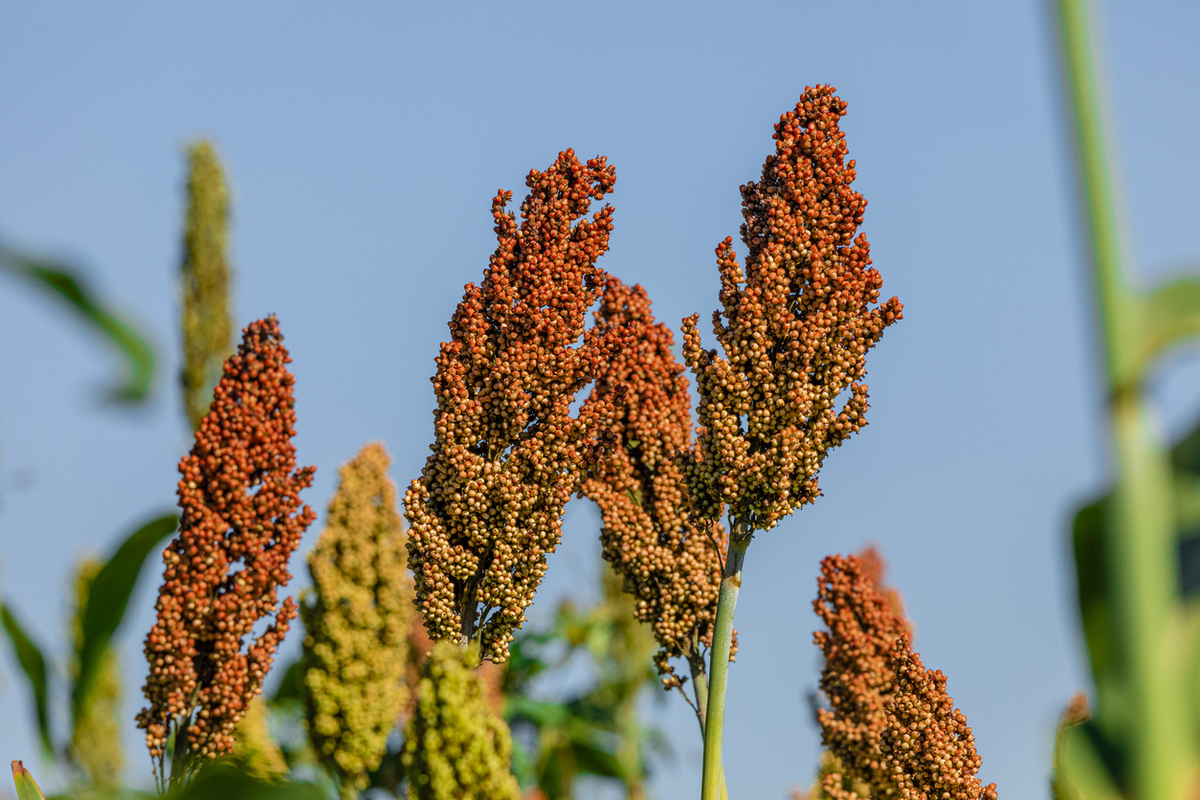
CABBI Engineers Bioenergy Crops for Improved Water Efficiency
September 11, 2024| |
A pair of studies conducted by researchers from the Center for Advanced Bioenergy and Bioproducts Innovation (CABBI) show the potential of genetic engineering in improving water use efficiency (WUE) in climate-friendly C4 bioenergy crops without negative effects on yield. Their studies are published in the Journal of Experimental Botany.
In their first study, the CABBI team improved WUE in sorghum by inserting a gene that modifies the developmental pattern and reduces the number of stomata on the leaves. This approach minimizes water loss in sorghum plants without affecting photosynthesis or biomass production. In the second study, the researchers found that the remaining pores opened wider when stomatal density was reduced in sugarcane and other C4 crops.
“Overcoming water limitations to crop production is really very central to achieving our mission of underpinning a profitable, sustainable, and resilient bioeconomy,” said Dr. Andrew Leaky, Director of CABBI. The findings of the study address challenges in crop research associated with enhancing WUE in plants, such as reduced inherent productivity, photosynthetic carbon gain, and growth rate. “We're taking the plants that already have an advantage as crops and then potentially making them even better without any drag on carbon gain,” Dr. Leaky said.
For more information, read the article from CABBI.
| |
You might also like:
- International Research Group Confirms Contribution of Bioenergy to Climate Change Mitigation
- Genes From Wheat Improves Plant Growth of Sorghum
- Bioenergy Scientists Discover Genetic Pathway for Easier and Less Costly Biofuels Processing
Biotech Updates is a weekly newsletter of ISAAA, a not-for-profit organization. It is distributed for free to over 22,000 subscribers worldwide to inform them about the key developments in biosciences, especially in biotechnology. Your support will help us in our mission to feed the world with knowledge. You can help by donating as little as $10.
-
See more articles:
-
Plant
- EFSA Issues 2022 Post-market Environmental Monitoring Report on the Cultivation of GM Maize MON 810
- COGEM Releases Advice on Renewal of Import and Processing of GM Cotton MON15985
- ASEAN Nations Tackle Gene Editing Applications and Science-based Regulations
-
Animal
- Chinese Researchers Highlight the Need for Equitable Access to CRISPR Technologies
-
Food
- ASCA7 Provides Platform for Learning, Collaboration, and Empowerment
-
Health
- Study Finds Agriculture Accelerated Human Genome Evolution to Capture Energy from Starchy Foods
-
Environment
- Global Study Identifies Practices for Climate-Resilient Agriculture
- CABBI Engineers Bioenergy Crops for Improved Water Efficiency
-
Read the latest: - Biotech Updates (December 17, 2025)
- Gene Editing Supplement (December 17, 2025)
- Gene Drive Supplement (February 22, 2023)
-
Subscribe to BU: - Share
- Tweet

